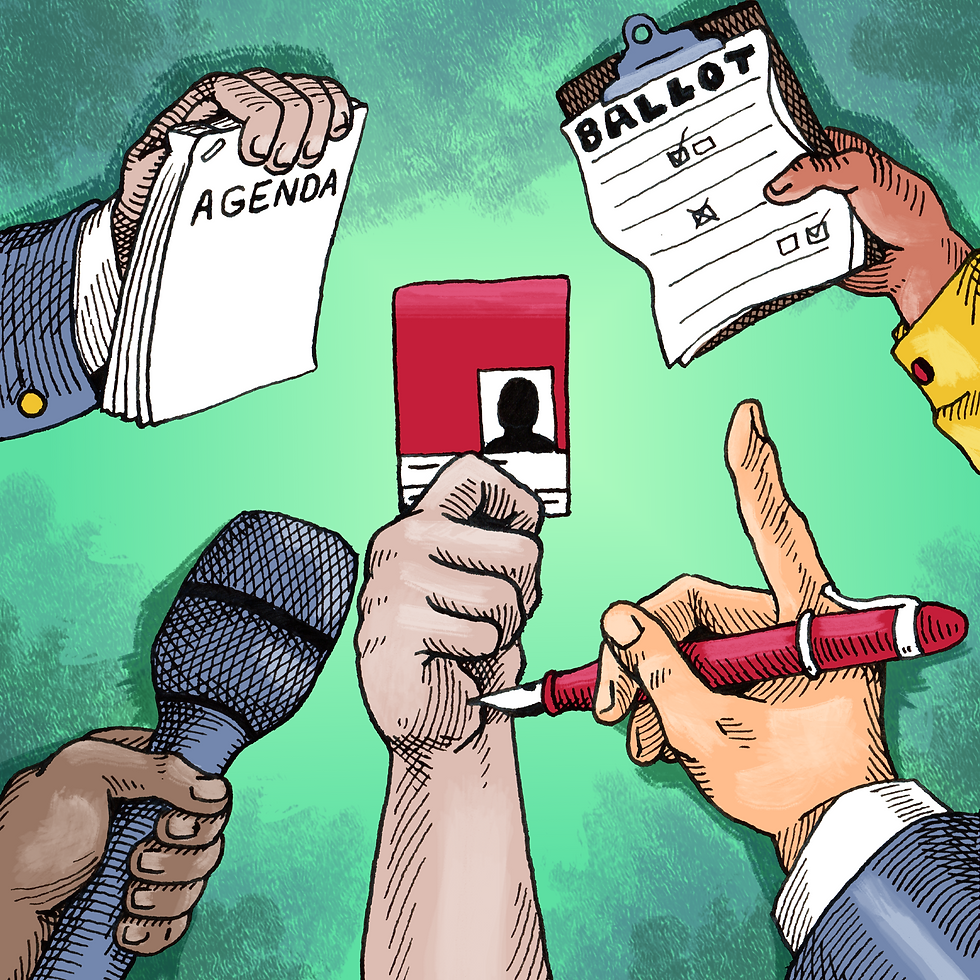Why vote? And how? A (last-minute) 2024 voting guide for Bearcats
- Collegian staff
- Oct 25, 2024
- 3 min read
Compiled by Jade Brandow, Staff Writer
Adapted by Robin Linares, News Editor

Voting season is finally upon us, Bearcats! With the 2024 presidential election fast approaching, students, some being first-time voters, may be confused about how to vote in this election cycle. This article contains information on the background of the voting process, how to register to vote, and some deadlines to pay attention to leading up to Nov. 5.
Data
According to the NSLVE Campus Report for Willamette University, accessed via the office of Associate Provost for Institutional Research Kelley Strawn, the voter turnout rate of students on Willamette’s campus hit 83% in the 2020 general election between Biden and Trump, higher than the national student voter turnout rate of 66%.
Youth vote
Professor Richard J. Ellis, a Politics, Policy, Law and Ethics (PPLE) professor currently teaching Direct Democracy, shared his perspective on the importance of college students participating in the democratic process.
He explained that young people should vote because we have different perspectives, policy preferences, and interests that do not reflect the opinions of older generations. If we choose not to exercise our right to vote, the values that define us as a generation of change will be underrepresented in the opinions and policies of our elected officials.
Down-ballot voting
Beyond the presidential election, people also are also able to vote in their local elections, such as for state congresspeople, county officials and school board members. Additionally, according to the U.S. Vote Foundation, down-ballot voting allows voters to contribute to local measures that have a more noticeable impact on how their cities are run. Oftentimes, these state and local government measures have a greater impact on people's day-to-day lives and local communities than the federal government does. Vote411.org provides information on the policy positions of local candidates running across the country. For Oregon voters, limited copies of Oregon and Marion County voting pamphlets are located in the Fish Bowl.
Registering to Vote
In order to register to vote, you need to be a U.S. citizen who will be 18 years old by Election Day, which is on Nov. 5. Registering to vote is the easy part — some states even register you automatically at the DMV once you hit the age threshold. So, for those living in Oregon, Washington, Colorado, Minnesota, Alaska, or Nevada, you’re good to go! For students unsure whether or not they are registered, they can check their status through a variety of places, including vote411.org, votesaveamerica.com/be-a-voter/, vote.org and usa.gov. These websites can also guide you to and through the voter registration process.
Voter registration deadlines vary by state, so here are a couple to look out for. While some registration deadlines have already passed, such as for Oregon and California, there are still states with upcoming deadlines for those voting from their home state:
Oregon - Oct. 15
California - Oct. 21
Washington - Oct. 28
Colorado - Nov. 5
Mail-in ballots
For those voting by mail in this election, one can request an absentee ballot at https://www.nass.org/can-i-vote/absentee-early-voting. For students registered in Oregon, their ballots should have already been mailed to the address on file. Students should contact their local election office if their ballot has not been sent.
For most states, mail-in ballots must be postmarked by Election Day, Nov. 5, in order to be counted. Some states, like Idaho, require ballots to be at their election office by 8 p.m. on Election Day, so out-of-state voters should consider mailing their ballot as soon as possible to ensure their ballot arrives in time. Mail-in ballots going to Hawaii have to be postmarked and sent by Oct. 28. Oregon voters can return their ballot by mail or drop off their ballot at a local dropbox location.




Comments